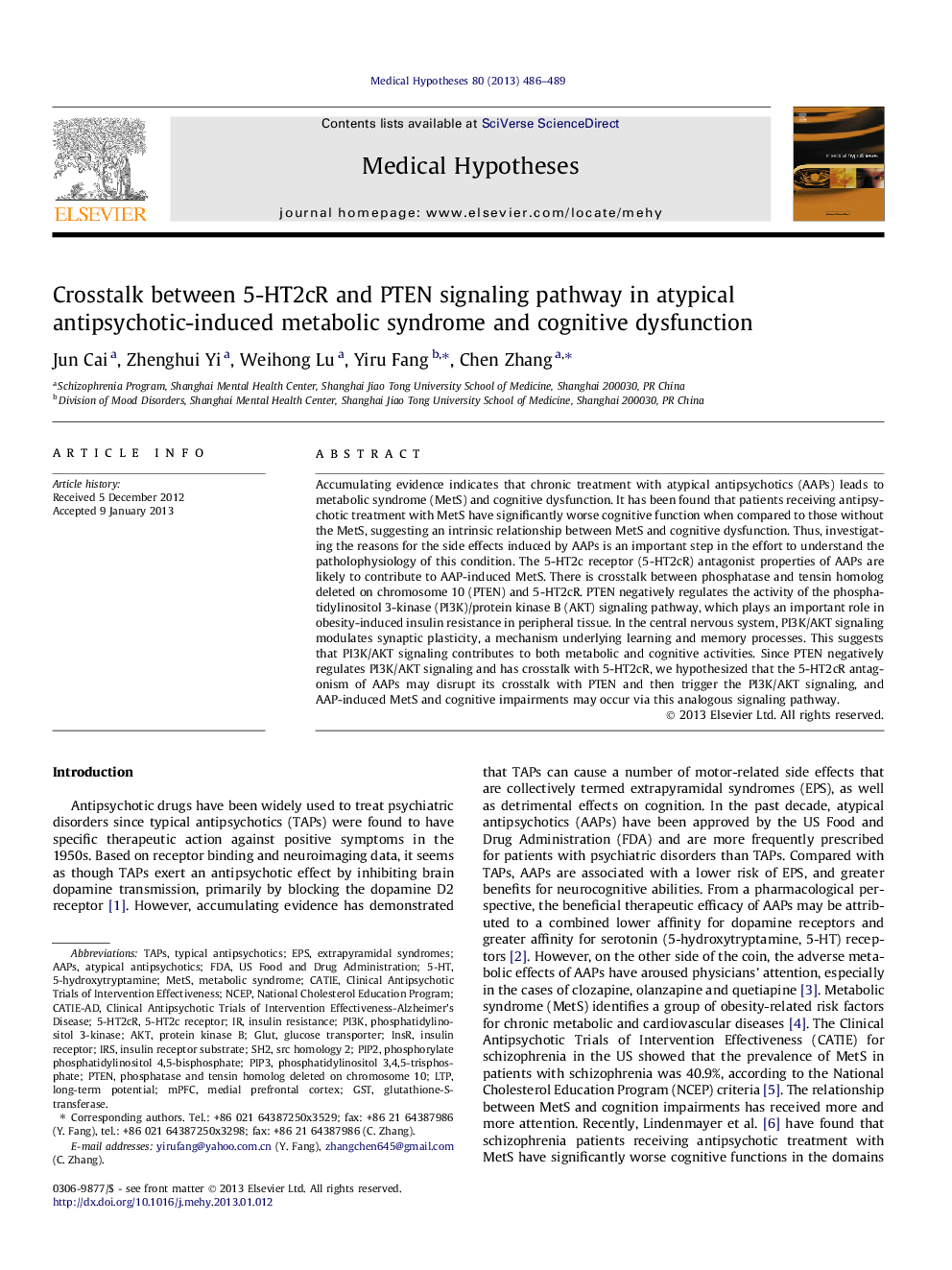| کد مقاله | کد نشریه | سال انتشار | مقاله انگلیسی | نسخه تمام متن |
|---|---|---|---|---|
| 2489198 | 1115023 | 2013 | 4 صفحه PDF | دانلود رایگان |

Accumulating evidence indicates that chronic treatment with atypical antipsychotics (AAPs) leads to metabolic syndrome (MetS) and cognitive dysfunction. It has been found that patients receiving antipsychotic treatment with MetS have significantly worse cognitive function when compared to those without the MetS, suggesting an intrinsic relationship between MetS and cognitive dysfunction. Thus, investigating the reasons for the side effects induced by AAPs is an important step in the effort to understand the patholophysiology of this condition. The 5-HT2c receptor (5-HT2cR) antagonist properties of AAPs are likely to contribute to AAP-induced MetS. There is crosstalk between phosphatase and tensin homolog deleted on chromosome 10 (PTEN) and 5-HT2cR. PTEN negatively regulates the activity of the phosphatidylinositol 3-kinase (PI3K)/protein kinase B (AKT) signaling pathway, which plays an important role in obesity-induced insulin resistance in peripheral tissue. In the central nervous system, PI3K/AKT signaling modulates synaptic plasticity, a mechanism underlying learning and memory processes. This suggests that PI3K/AKT signaling contributes to both metabolic and cognitive activities. Since PTEN negatively regulates PI3K/AKT signaling and has crosstalk with 5-HT2cR, we hypothesized that the 5-HT2cR antagonism of AAPs may disrupt its crosstalk with PTEN and then trigger the PI3K/AKT signaling, and AAP-induced MetS and cognitive impairments may occur via this analogous signaling pathway.
Journal: Medical Hypotheses - Volume 80, Issue 4, April 2013, Pages 486–489